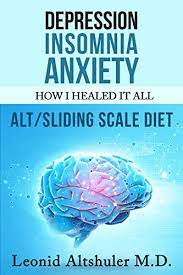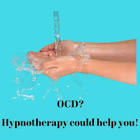Understanding the Relationship Between OCD and Depression
OCD (Obsessive-Compulsive Disorder) and depression are two common mental health conditions that can often coexist and have a complex relationship. While they are distinct disorders, they can impact each other in various ways.
OCD and Depression: How Are They Connected?
Individuals with OCD may experience intrusive thoughts or obsessions that lead to compulsive behaviors or rituals. These obsessions can cause significant distress and anxiety. The constant cycle of obsessions and compulsions can take a toll on a person’s mental health and lead to feelings of hopelessness, guilt, or worthlessness – all common symptoms of depression.
On the other hand, individuals with depression may also exhibit symptoms that overlap with OCD, such as repetitive behaviors or negative thought patterns. The presence of both disorders can exacerbate symptoms and make it challenging for individuals to cope with daily life.
Treatment Approaches
When treating individuals with both OCD and depression, it is essential to address both conditions simultaneously. Therapy approaches such as Cognitive Behavioral Therapy (CBT) have been shown to be effective in treating both disorders. CBT helps individuals challenge negative thought patterns, develop coping strategies, and gradually reduce compulsive behaviors.
Medication can also be prescribed to manage symptoms of OCD and depression. Selective Serotonin Reuptake Inhibitors (SSRIs) are commonly used to treat both conditions by increasing levels of serotonin in the brain, which can help regulate mood and reduce obsessive thoughts.
Self-Care Strategies
In addition to professional treatment, individuals dealing with OCD and depression can benefit from practicing self-care strategies. This may include maintaining a healthy lifestyle through regular exercise, balanced nutrition, adequate sleep, and stress management techniques like mindfulness or relaxation exercises.
Building a strong support system is also crucial for managing these conditions. Connecting with friends, family members, support groups, or mental health professionals can provide much-needed emotional support and encouragement during challenging times.
Conclusion
While living with both OCD and depression can be overwhelming, it is important to remember that help is available. Seeking professional treatment, engaging in therapy, taking prescribed medication as directed, practicing self-care strategies, and building a support network are all vital steps toward managing these conditions effectively.
If you or someone you know is struggling with OCD or depression symptoms, reach out to a healthcare provider or mental health professional for guidance on treatment options tailored to individual needs.
Understanding OCD and Depression: Common Questions and Answers
- What to do when OCD flares up?
- Is it possible to have OCD anxiety and depression?
- What is the 15 minute rule for OCD?
- Is OCD a form of anxiety or depression?
- Is OCD more common than depression?
- Is there a link between depression and OCD?
What to do when OCD flares up?
When OCD flares up, it is essential to have a plan in place to manage the symptoms effectively. One approach is to practice grounding techniques, such as deep breathing or mindfulness, to help bring your focus back to the present moment and reduce anxiety. Engaging in activities that bring comfort or distraction, like exercise or hobbies, can also be beneficial in redirecting obsessive thoughts. It is important to resist the urge to engage in compulsive behaviors and instead challenge irrational beliefs through cognitive restructuring. Seeking support from a therapist or support group can provide additional guidance and encouragement during challenging times of OCD flare-ups. Remember that self-compassion and patience are key in navigating through these episodes with resilience and determination.
Is it possible to have OCD anxiety and depression?
Yes, it is possible to experience a combination of OCD, anxiety, and depression simultaneously. These mental health conditions often coexist and can interact with each other, leading to a complex and challenging experience for individuals. OCD can cause intrusive thoughts and compulsive behaviors that result in heightened anxiety levels, while the repetitive nature of OCD symptoms can contribute to feelings of hopelessness or despair commonly associated with depression. Managing all three conditions may require a comprehensive approach involving therapy, medication, self-care strategies, and support from mental health professionals to address the unique challenges posed by each disorder.
What is the 15 minute rule for OCD?
The 15-minute rule for OCD is a common strategy recommended by mental health professionals to help individuals manage their obsessive thoughts and compulsive behaviors. The rule involves delaying the urge to engage in a compulsive ritual for at least 15 minutes when experiencing an obsessive thought. During this time, individuals are encouraged to practice mindfulness techniques, such as deep breathing or focusing on a specific task, to help reduce anxiety and interrupt the cycle of obsessions and compulsions. By implementing the 15-minute rule, individuals with OCD can learn to tolerate uncertainty and gradually decrease the intensity of their compulsive behaviors over time.
Is OCD a form of anxiety or depression?
Obsessive-Compulsive Disorder (OCD) is often misunderstood in relation to anxiety and depression. While OCD can involve symptoms of anxiety, such as persistent worries or fears, and can lead to feelings of distress or panic, it is not solely a form of anxiety. Similarly, although individuals with OCD may experience symptoms that overlap with depression, such as low mood or hopelessness, OCD itself is distinct from depression. OCD is characterized by intrusive thoughts (obsessions) and repetitive behaviors (compulsions) that individuals feel driven to perform in response to their obsessions. Understanding the nuances between OCD, anxiety, and depression is crucial in providing accurate diagnosis and effective treatment for individuals experiencing these mental health conditions.
Is OCD more common than depression?
The prevalence of OCD (Obsessive-Compulsive Disorder) and depression varies, making it challenging to definitively state whether OCD is more common than depression. OCD affects approximately 1-2% of the population worldwide, while depression is estimated to impact around 6.7% of adults in the United States alone. Both disorders can have significant impacts on individuals’ daily lives and well-being. It’s crucial to recognize that the severity and impact of each condition can vary widely among individuals, highlighting the importance of seeking proper diagnosis and treatment for those experiencing symptoms of either disorder.
Is there a link between depression and OCD?
The link between depression and OCD is well-documented in the field of mental health. While depression and OCD are separate disorders, they often coexist and can influence each other. Individuals with OCD may experience intrusive thoughts or compulsions that lead to feelings of anxiety and distress, which can contribute to symptoms of depression. Likewise, individuals with depression may exhibit behaviors or thought patterns that overlap with OCD, such as repetitive actions or negative self-talk. Understanding the relationship between these two conditions is crucial in providing comprehensive treatment that addresses the unique challenges faced by individuals dealing with both depression and OCD.



Heyy theree I aam soo delighte I foujnd youhr webpage,
I really fopund yoou by mistake, whike I wwas browsing on Yahooo for soomething else,
Nonegheless I amm here noww annd would juhst like to saay thank yyou foor a fantastic pkst
and a all roind thilling blog (I also love the theme/design), I don’t haqve timne
to browde iit all att thee moment butt I have bookmarked iit andd
also included your RSS feeds, so when I haave time I wil be bck too read muc more, Please do keep uup the excellent b.
Thank you for your kind words! We’re glad you stumbled upon our webpage and found the content engaging. Feel free to explore more about OCD and depression whenever you have the time. Your support means a lot to us!